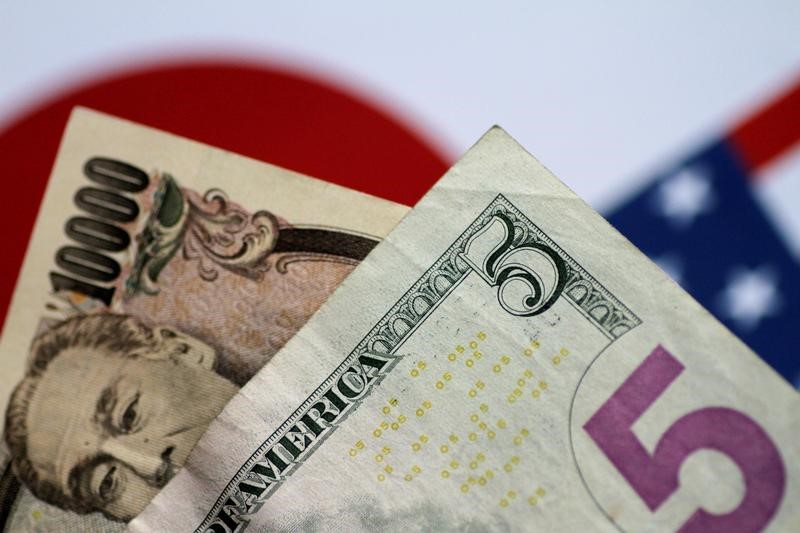Gold prices set for weekly gains on dovish Fed outlook; silver near record high
Investing.com - The U.S. dollar was trading near one-week lows against a currency basket on Monday, with the yen and the Swiss franc, seen as safe havens in time of uncertainty, gaining ground as global trade tensions escalated.
With the U.S. administration's combative stance on trade widening to countries beyond China, and with China threatening more countermeasures over the weekend, markets have started to price in a sharp slowdown in global growth. Those fears have been reflected in an 11% drop in the price of oil since Thursday.
U.S. and Mexican officials are preparing for talks later in the day after U.S. President Donald Trump vowed to impose tariffs on all Mexican imports in an intensifying dispute over migration.
"The Mexican news is quite punchy. No one was really expecting it to the same extent they were with China," said Chris Weston, Melbourne-based head of research at foreign exchange brokerage Pepperstone. "Mexico is a huge trade partner with the U.S.," he said.
The dollar was down 0.1% against the Swiss franc to 0.9991 by 02:47 ET (06:48 GMT) and was at 108.35 against the yen after brushing a four-month low of 108.08 overnight.
On Friday, the Japanese currency had booked its sharpest daily rise in more than two years, climbing a little over 1.2% during the session.
The yen is considered a safe haven asset in times of geopolitical and financial turmoil as Japan is the world's biggest creditor nation.
The Mexican peso, hit by Trump's sudden threat to impose tariffs on Friday, regained some stability, trading at 19.6373 to the dollar, after its 2.5% fall on Friday.
A senior Chinese official and trade negotiator said on Sunday Washington cannot use pressure to force a trade deal on China and denounced what he called "coercion" tactics from the U.S. Separately, Chinese state media reported that authorities were preparing an investigation of FedEx (NYSE:FDX)'s activities there.
"Markets are trying to catch up with negative news in relation to trade relations for the time being," said Kumiko Ishikawa, senior analyst at Sony Financial Holdings. "They're seriously starting to react to prolonged trade tensions in a risk-off way."
The dollar dipped after benchmark 10-year U.S. Treasury yields hit as low as 2.12% on Monday, their lowest since September 2017.
German 10-year government bonds have fallen to -0.20%, their lowest ever, on fears that the ruling coalition may collapse after the resignation of Andrea Nahles, as head of the Social Democratic Party, the junior partner in the coalition.
Against a basket of six major currencies, the dollar was not far from a one-week low at 97.692, though it is still up 1.5% for the year.
The euro was little changed at $1.1163 - its first gain in five sessions.
The Australian dollar was at 0.6941 after hitting a three-week high of 0.6959 overnight on the back of a slightly better-than-expected positive Chinese factory activity reading for May.
The Aussie's gain came despite a New York Times report, citing sources, that Trump had been urged to impose tariffs on Australian imports in response to an increase in exports of aluminum to the U.S. over the last year.
--Reuters contributed to this report
